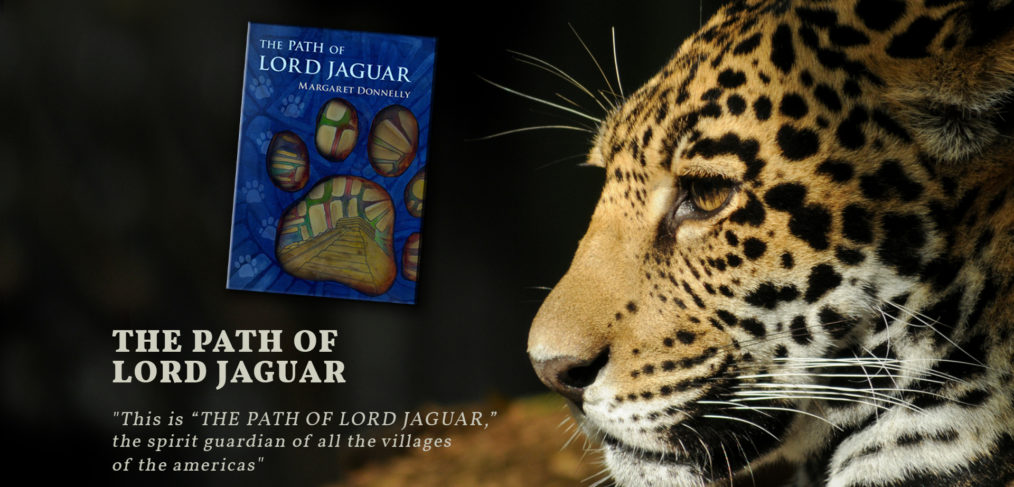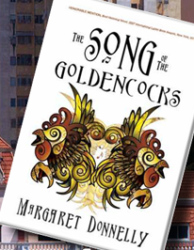
The Path of Lord Jaguar and post-racial America
This year, multiple events have inflamed the wound of racism in the United States, an ugly scar pre-dating the birth of this country which many – particularly white Americans – believed to be healing nicely. In fact, after Barack Obama was elected President, the idea was popularized that we had become a “post-racial America,” a nation devoid of racial preference, discrimination, and prejudice. Many people believed or hoped that the new presidency would change how we talk about and experience race in this country.
Unfortunately, the belief that we had become a post-racial society was the social equivalent of the proverbial ostrich with its head in the sand. The easiest way to deal with racism is to pretend it doesn’t exist. As a white American, it’s not hard to ignore race issues that are relevant to current social dynamics. A Washington Post analysis of Pew Research Center polling on racial issues shows that half of white people do not sense black people are treated less fairly than whites — by police, employers, doctors, restaurants and schools, and at the ballot box. For the most part, we were born into an inheritance of racial privilege which has sheltered us from the experience of racism. We simply don’t know how it feels to live as minorities in this society, and it’s easy to mistake the real progress that has been made over the last 150 years as an issue that has been resolved.
However, recent events have shown us that racism is not merely a historical flaw that we have fixed; it is alive and well and requires immediate attention. Examples of racism this year include:
- Dylann Roof’s murders at the Charleston black church along
- The brutal arrest of a 15 year old black girl at a McKinney Texas swimming pool
- Murders of black men by white officers
- Defense of the Confederate Flag as a symbol worthy of retention at state capitols
Racism is, of course, not only a problem for black Americans. Our society discriminates against Hispanics, as well. Just this week, a beautiful movement ignited, making headline news. Fighting against harmful stereotypes regarding young Latina women, females across the country are using the Twitter hashtag #HispanicGirlsUnited to show the many ways they defy the limited ways they are portrayed in media and film. Beyond these female experiences of racism, other examples of racist attitudes towards Hispanics include:
- Presidential-hopeful Donald Trump’s remark that Mexico is “not sending the best” of its people to the US, causing Mexicans to create the “Donald Trump piñata
- Immigrants from Mexico and Central America are treated poorly and are often detained separately from their children
If you are interested in both the history and current states of racism in the United States, I highly recommend reading author Margaret Donnelly’s “The Path of Lord Jaguar.” This book explores racism from multiple perspectives, from the historical horrors of the African slave ships and plight of blacks when they first arrived in this country to the modern-day trials faced by a Nigerian immigrant named Kemi. She also examines discrimination and systemic persecution endured by Hispanics through another main character, Pablo, who is a Mexican Maya shaman. Finally, she suggests that the abhorrent style of Nazi racism made its way to the Americas following the escape of German war criminals post-World War II. The wealth and privilege accrued at the expense of Holocaust victims still finances the heirs of this repugnant, racist culture, in “Jaguar.”
If it’s outside of your personal experience, Donnelly’s vivid story will open your mind to the issues and experiences faced by people of color. In addition to her career as a writer, Donnelly is also a Texas immigration attorney with over thirty years of experience. Her firsthand knowledge of our immigration system and the problems faced by immigrants adds depth and dimension to her story. The reader is gifted a compassionate view of the characters’ struggle to thrive in a society that doesn’t value their talents and personal worth.
“The Path of Lord Jaguar” is a sequel to Donnelly’s earlier work, “The Song of the Goldencocks,” which takes place in South America. “Jaguar” works as a stand-alone book, but I highly recommend reading both books in the proper order. Donnelly’s sharp understanding of international affairs, politics and social issues comes into focus even better when these two historical novels are read in sequence.
Both books are available through Margaret’s store at amazon.com. If you are inspired by these works, my best to you as we work together to build a truly post-racial society.




